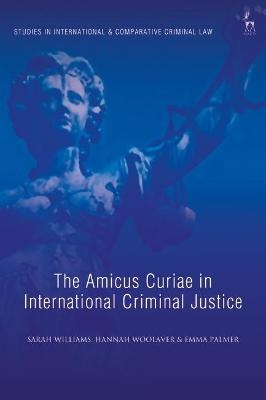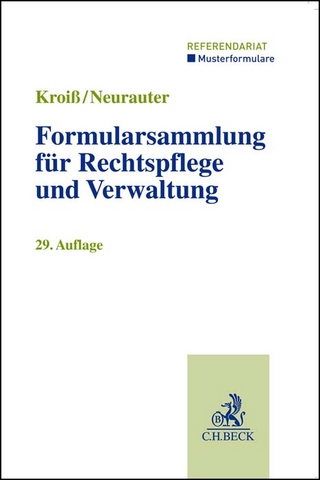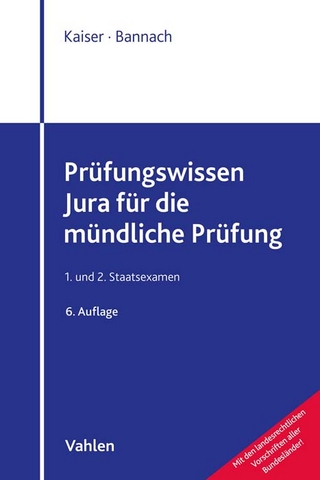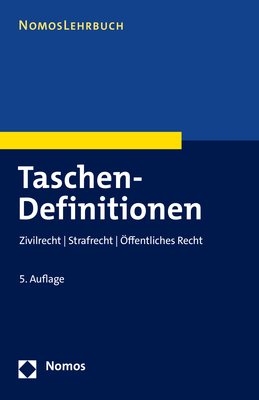
The Amicus Curiae in International Criminal Justice
Hart Publishing (Verlag)
978-1-5099-1332-9 (ISBN)
This book provides a comprehensive examination of the amicus curiae practice of the International Criminal Court and other major international criminal tribunals and offers suggestions for the role of the amicus curiae. In doing so, the authors develop a framework to augment the potential contributions of amicus participation in respect of the legitimacy of international criminal tribunals and their decisions, while minimising interference with the core judicial competence of the tribunal and the right of the accused to a fair and expeditious trial.
Sarah Williams is Professor at the Faculty of Law, UNSW Sydney. Hannah Woolaver is an Associate Professor at the Faculty of Law, University of Cape Town. Emma Palmer is a Lecturer at Griffith Law School, Griffith University.
1. International Criminal Tribunals, Legitimacy and the Amicus Curiae
I. Introduction
II. Why International Criminal Tribunals? And Which Ones?
III. Legitimacy in International Criminal Justice
IV. Legitimacy and the Amicus Curiae
V. Method and Chapter Overview
2. The Amicus Curiae in Comparative Perspective
I. Adopting a Functional Approach
II. Standing to Bring a Claim
III. Joinder of Claims and Cases
IV. Intervention
V. The Amicus Curiae: A Friend of the Court
VI. Relevance of Comparative Practice to International Criminal Tribunals
3. The Amicus Curiae in International Criminal Tribunals: An Introduction
I. Overview
II. Standing in International Criminal Tribunals
III. History of Amicus Curiae Participation in International Criminal Tribunals
IV. The Amicus Curiae Prosecutor and the Prosecutor as Amicus Curiae
V. Limits on Amicus Curiae Participation
VI. The Amicus Curiae and Other Mechanisms for Expertise, Representation and Communication
VII. Conclusion
4. The Amicus Curiae in International Criminal Tribunals in Practice
I. Introduction
II. Who Can Participate as an Amicus Curiae?
III. When Can an Amicus Curiae Participate?
IV. How do Amici Curiae Participate?
V. Substantive Criteria for Admitting Amici Curiae
VI. Impact of Amicus Curiae Submissions
VII. Participation in ICC Reparations Proceedings
VIII. Conclusions
5. Civil Society Actors as Amici Curiae
I. Introduction
II. Overview of Civil Society Actors at International Criminal Tribunals
III. The Expertise Function and Civil Society Actors
IV. Representation of Interests by Civil Society as Amici Curiae
V. The Communicative Function and Civil Society
VI. Impact of Civil Society Amicus Curiae Submissions
VII. Conclusion
6. The Amicus Curiae and the Defence
I. Introduction
II. Overview of Defence Amicus Curiae Practice
III. The Defence and the Provision of Expertise through the Amicus Curiae
IV. The Use of the Amicus Curiae to Represent the Interests of the Defence
V. The Communicative Function and the Defence
VI. Conclusion
7. Representing State Interests
I. Introduction
II. Overview of State and International Organisation Amicus Curiae Practice
III. State and International Organisation Amici Providing Expertise
IV. The State or International Organisation Amici Representing an Interest
V. State Amici Performing a Communicative Function
VI. The Challenge of Engaging Reluctant or Resistant States
VII. Conclusion
8. Conclusion
| Erscheinungsdatum | 21.05.2019 |
|---|---|
| Reihe/Serie | Studies in International and Comparative Criminal Law |
| Verlagsort | Oxford |
| Sprache | englisch |
| Maße | 156 x 234 mm |
| Gewicht | 788 g |
| Themenwelt | Recht / Steuern ► Allgemeines / Lexika |
| Recht / Steuern ► EU / Internationales Recht | |
| ISBN-10 | 1-5099-1332-7 / 1509913327 |
| ISBN-13 | 978-1-5099-1332-9 / 9781509913329 |
| Zustand | Neuware |
| Haben Sie eine Frage zum Produkt? |
aus dem Bereich


